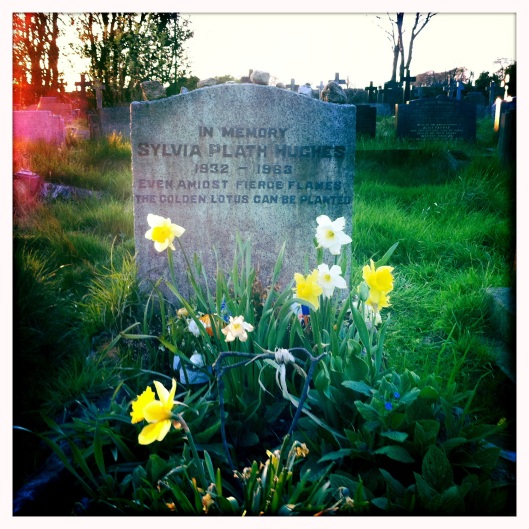Poetry and the writing of it is to me a sacred creative, transcending thing. It has always been something secret, special and introverted, not something I talk about. It’s been an intermittent relationship, a journey with many stops and starts, but a desired and committed journey nonetheless, like an old friend I know so well who is always there to connect with, to rely upon, to give to and to learn from.
And we have been through so much. From early times, when I learned to love the value of words as a passion ignited from some deep place I was unaware of. In ‘The touch and reach of poetry‘, I reflected on these early influences and my enduring love, noting that:
Poetry especially can feel like a driven art with not many places to go. It’s easy for it all to go underground for a while in between other things like work and family, but it springs back up eventually. You cannot keep it down forever it seems.
I have woven poetry into the tapestry of my days, if unevenly. When at university studying education, I also studied literature so I could keep reading poetry and study the writing of it. When doing my Honours year on education and literacy, I chose to do a research project on ‘Poetry in Education: developing affective response’ about the aesthetic reading process, how poetry is taught and why this does not generally ignite a love of poetry. It worried me that so many people leave school without a love for poetry and that the teaching of it seemed to miss its heart.
Poetry became the way I transcended heartache, sadness, hurt and loss – finding the words to hold a moment just so, to fix it, to crack it apart or to recreate it and fashion what could never be except in the shape of the words I laid on the page. It was a way of saying good-byes that could not be said in any other way.
I wrote in Poetry: into the light about the freeing up of poetry and the revisiting of it. Sage Cohen’s book, ‘Writing the Life Poetic‘, became a touch-point for poetry being pulled down from its pedestal and integrated more into my daily life. I re-engaged with my poetry writing, organised and reworked my years of drafts of poems and engaged directly with Sage and her teaching through her inspirational online poetry writing courses.
Wanting to reconnect more with poetry and modern poets, I’ve recently started the Massive Open Online Course, ModPo, Modern and Contemporary American Poetry, led by Al Filreis through the University of Pennsylvania. It’s a wondrous journey and community and especially celebrates the ‘close reading of poetry as a social act‘ via online connection. People from all educational backgrounds from all over the world link to discuss poetry for mostly no other reason than the joy of poetry. It is simply so grounding and freeing to see and hear poetry being discussed, read and enjoyed in this way. Starting with Emily Dickinson and Walt Whitman and stretching to the present time, the language and art of various American poets is widely shared.
And then there’s the world of publishing poetry – old and new. Once upon a time, poetry success was judged by publication in literary journals and only very few poems could be seen this way. This option still exists but poetry accessibility is now more opened up with people publishing their work through the internet on their blogs, through print on demand, chapbooks and various other media, and with Twitter, Tumblr, Instagram and Facebook as ways to get poetry out there and to communicate with readers. Though it seems poetry has remained a publishing challenge generally and especially for e-readers.
Witness however: ‘Tyler Knott Gregson’s poetry cracks the best-seller’s list‘! Tyler has been incredibly committed to poetry and to social media, writing “at least one new poem a day for his blog over the past five years”, sharing his work on Tumblr, Instagram, Twitter, and Facebook without missing a day. He now has 259,000 followers on Tumblr, 184,000 on Instagram and 31,000 Twitter followers. And from this, his first publication of poetry has hit the best-seller lists. According to the Wall Street Journal article:
Mr. Gregson doesn’t edit or revise his work. He simply types the poems on scraps of paper—boarding passes, receipts or pages torn from notebooks—and posts a new one online each day.
It’s refreshing and inspiring to see how far poetry can be freed up and communicated and loved so widely.
I am learning from Sage Cohen, ModPo and Tyler Knott Gregson about how poetry can be taken off its pedestal and loved and communicated widely via new approaches, especially via online learning and social media.
And for me? Writing poetry has been a key love of my life but it’s been a stop start affair, partly because I make it so sacred sometimes, maybe too sacrosanct and special. I have a body of work of some nearly 200 poems now, crafted over time. I have been published – in literary journals, in a local writers’ anthology and online including on my own blog (apparently that counts as publication these days!).
It’s time though to dust my work off and let it shine and let more light in so there can be more growth and more light.
As Sylvia Plath famously said:
Nothing stinks like a pile of unpublished writing.
So I will learn from these key people about freeing up the writing, the reading and the publishing of poetry. A first step will be gathering what has been published of my work here in one place as a starting point, getting this, my body of work, into the light. Then working on the next steps…
What are your thoughts on freeing up poetry – writing, reading and publishing…I’d love to know!




